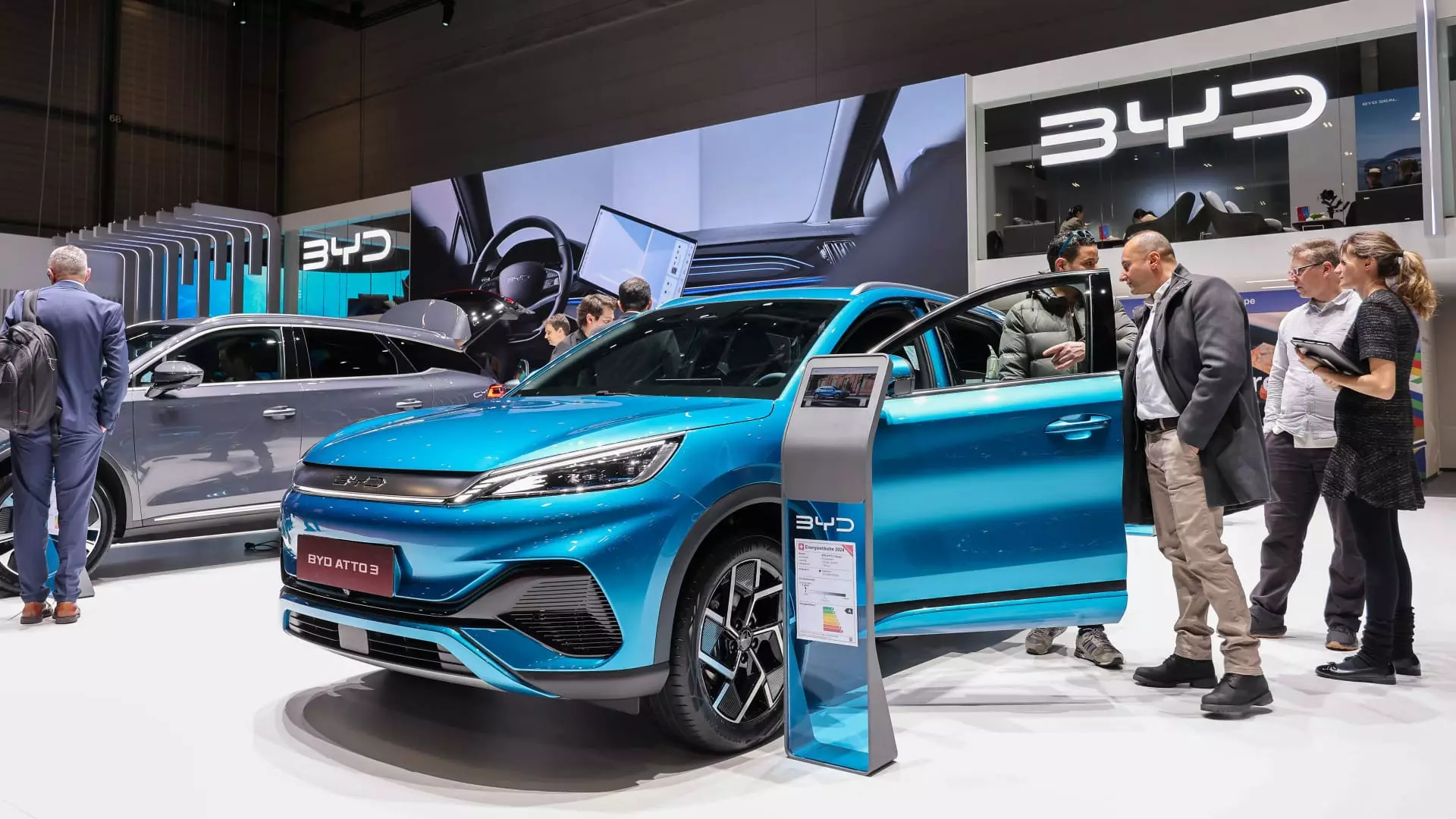The market for electric vehicles in Europe is witnessing a significant shift, with China-made electric vehicles projected to constitute more than a quarter of EV sales in the region this year. This marks an increase of over 5% from the previous year, signaling a growing presence of Chinese brands in the European market. A recent policy analysis conducted by the European Federation for Transport and Environment (T&E) revealed that about 19.5% of battery-powered EVs sold in the EU in the last year originated from China, with countries like France and Spain accounting for nearly a third of these sales.
The research conducted by T&E suggests that the share of made-in-China electric vehicles in Europe is expected to continue rising, reaching just over 25% by 2024. Chinese automakers such as BYD are increasingly focusing on global expansion, contributing to the growing market share of Chinese EVs in the region. While Western brands like Tesla currently dominate the EV market in Europe, Chinese brands are set to capture a significant portion of the market in the coming years. By 2024, Chinese brands alone are projected to account for 11% of the EV market in Europe, with this figure potentially rising to 20% by 2027.
The influx of China-made electric vehicles into the European market has raised concerns among policymakers, leading to investigations into subsidies provided to Chinese EV manufacturers. The European Commission is examining whether these subsidies give Chinese companies an unfair advantage over local manufacturers. Non-Chinese brands that produce and ship EVs from China, such as Tesla and BMW, may also come under scrutiny as part of this investigation.
According to industry experts like Tu Le, the success of Chinese EV manufacturers can be attributed to incentives put in place in China that fueled the growth of startups and enhanced battery cell capacity in the country. This has paved the way for the production of affordable EVs, giving Chinese brands a competitive edge in the global market. However, challenges remain for European manufacturers, as they struggle to match the affordability and quality of Chinese-made EVs. T&E has suggested that increasing tariffs on imported EVs from China could help level the playing field, but this would require Europe to bolster its battery cell production capabilities to reduce dependence on Chinese suppliers.
In response to the policy risks associated with shipping China-made EVs to Europe, Chinese manufacturers like Tesla and BYD have begun to ramp up their manufacturing efforts in the continent. This strategic move not only helps mitigate potential trade barriers but also aligns with the growing demand for electric vehicles in Europe. By establishing local production facilities, Chinese automakers can enhance their market presence and better cater to the needs of European consumers.
The rise of China-made electric vehicles in the European market signifies a significant shift in the automotive industry. As Chinese brands continue to expand their global footprint, European manufacturers face both challenges and opportunities in competing with their Chinese counterparts. Policymakers and industry stakeholders must work together to create a level playing field that encourages innovation and sustainability in the electric vehicle market.

